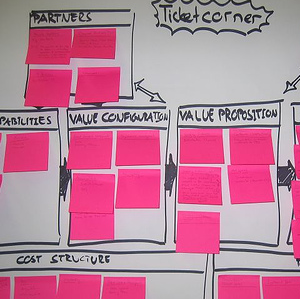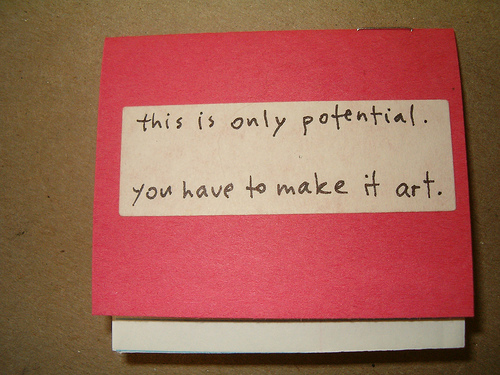Travel
100 countries, colombo, sri lanka
 Colombo by Night -- Image by Dimitri
Colombo by Night -- Image by DimitriI’m sitting in a hotel lobby in Colombo, Sri Lanka, listening to the cover band play Lionel Ritchie from the back of a wedding reception where I’m obviously an outside observer. Sipping a 12-ounce Heineken I bought at the gas station across the street, I reflect on the last two weeks.
The final trip of the year.
And also, my 100th country. How did I come this far?
Before I can fully consider the question, we have a brief diversion as the band segues into a toast for the bride and groom -- or so I presume, since the bandleader is speaking Sinhala, the local language. I hear the word champagne and everyone stands with a glass in hand. I raise my Heineken can and smile. No one notices me, which I take to be a good sign.
In Which I Sleep Through the Entire Day
The flight to Sri Lanka (from Doha, Qatar) did not go so well. I was told at check-in that the morning flight was totally full, but if I wanted I could switch to the red-eye flight leaving at 12:50 a.m. Since I don’t usually sleep on planes, I’m not a big fan of red-eye flights, but I asked how full the flight was before making a decision. I was told that the midnight flight was fairly empty and I could have a whole row to myself near the front of the Economy section. OK, I said. I’ll take it.
You can guess what happened – the flight was totally packed and I was in the next-to-last row in the back. How does that work? Why did they lie to me?
It’s all about expectations, and in this case I was not prepared to fly 5 hours through the night in the very back of a crowded plane. Thankfully, every bad flight has to end at some point, and at 8:30 a.m. local time, it’s all over.
Upon arrival at the airport in Colombo, I’m tired from not sleeping at all the night before. I negotiate the taxi price down from $25 to $15 (it’s a long way from the city), and ride into town to a local hotel. I’m not especially jet-lagged, since I’ve been traveling incrementally this time (Panama City, Madrid, Cairo, Doha, and now Colombo), but the red-eye flight has definitely taken its toll.
I lie down and sleep for five hours straight, about three hours more than I planned.
I wake up when someone knocks on the door to ask about cleaning. "No thanks," I say, and go back to bed. I sleep for three more hours, and then three more after that. After 11 hours of sleeping, which I think is a personal record for me, I finally wake up at exactly midnight local time. I can’t believe I’ve slept this long!
I decide there’s not much to do except get up and pretend it’s morning, since there’s no going back to sleep tonight after a day of sleeping 11 hours.
Colombo from Midnight to 7am
I take a shower and sit down at the desk to do some writing. I have been trying to finish the next Unconventional Guide for weeks now, and I finally manage to force myself to work on it for three good hours.
At 3:00 a.m., I decide it’s time to go exploring. Sri Lanka itself is not exactly a safe place (there is an ongoing civil war between government forces and what is considered a rebel army in the north), but ironically this means that the capital of Colombo is actually more safe than it would otherwise be. This is because almost everywhere you go, armed soldiers are standing guard 24 hours a day at intervals of only 100 meters apart. There are security checkpoints throughout the city, and a big section of downtown is blocked off from traffic for most of the day.
I walk along the beach and am stopped at each post along the way by guards who are surprised to see a foreigner out walking in the middle of the night, but they don’t bother me too much. I pass by a group of kids about 7-10 years old who are all out flying a kite on the beach. As to why they are doing this at 3:00 a.m., I have no idea, but they are friendly enough. They all run up to me and start talking, but after we exchange names, there’s not a lot to say.
“Please, tell me what time it is,” one of them says. I tell him the time and he thanks me.
The next one speaks up. “Please, tell me what time it is,” he says. I repeat the same answer and he thanks me. It seems this is as far as the English lessons go in the 4th grade over here, so I wave goodbye and keep walking.
An hour later I’m on my way back to the hotel and it’s close to 4:30 a.m. I know this because I encounter the group of kids on the beach again. They all wave and come over. “Please, tell me what time it is,” one of them says again. “What is your name?” another one asks for the second time.
I give them the answers (again) and they all wave me off. The guards are less anxious now that I’m going back where I came from, and the sun should be up soon. I read until 6:30 a.m. and then go down to breakfast, which effectively also serves as lunch and dinner from the day before. It’s a big meal, thankfully.
100 Countries
A long time ago, I had a dream to visit 100 countries. I was traveling through Eastern Europe for the first time, and I counted up all the places I had been and thought about everywhere else I wanted to go.
This was nearly four years ago.
Dreams only go so far – they have to be turned into goals, or else they tend to remain dreams, like winning the lottery. I did the math and figured out that it would not be terribly difficult to visit 100 countries as long as I was willing to give up some other things. I set the goal and started planning several overseas trips a year.
Along the way I had to make a number of other decisions and very real sacrifices. I had to be away from home a lot, spend most of my disposable income on Round-the-World plane tickets, endure a few stressful and uncomfortable situations, and so on. While I enjoy many aspects of travel and many places around the world, there are certainly others I don’t care for as much. With travel, like anything else, sometimes you have to take the bad with the good. It’s just part of the deal.
When it comes down to it, though, when I first started thinking about the goal of 100 countries, I couldn’t get it out of my mind. I knew that I would always regret it if I didn’t try, and that knowledge has made all the difference. I think about that often, especially when it gets hard. This summer had some hard times, but now I’m sitting on a small island in South Asia, and I’ve already been to more places than most people will visit in their lifetime.
Back at the Wedding Reception
I’m in Sri Lanka for three more days, and it’s a nice place to hang out for your 100th country. I go to a Buddhist festival, an international book fair, and an Anglican church service. One taxi driver I meet tells me it’s 42° (107° Fahrenheit) the first morning I’m there, and I believe him. My clothes are soaked with sweat after half an hour of walking mostly in the shade, and I’m quickly defeated. I hire a tuk-tuk and go to the civic center for the book fair.
On the day of departure, my flight out to Hong Kong doesn’t leave until the awful hour of 1:45 a.m., so I have a final evening to spend before heading back out to the airport. After walking for a while, I pass the time hanging out at the previously-mentioned wedding.
From a sign at the entrance I see that this wedding is for Mr. Shahib Praseen and his lovely bride Tenga. Thank you, Shahib and Tenga, for letting me sit in the back of the room and write these notes while listening to Stuck On You being performed in traditional Asian hotel band style.
Classic Asian hotel band style, if you didn’t know, consists of five musicians but rarely a drummer – fake drums are provided via MIDI keyboard. There is often a female singer, but all of the musicians are men. You can hear the same synthesizer sounds all over Asia, and usually the same songs too.
I head out to the lobby to buy something to eat, where a competing band is playing Shania Twain.
Looks like we made it
Look how far we’ve come now baby
There’s one thing I like about going to places like Sri Lanka – I can afford to eat at real restaurants, and sometimes stay in nice hotels. In Brussels the $3 sandwich I’m eating would cost $14, and would the band really be playing Shania Twain? Come on. You want to hear Stuck On You or Still the One performed in full MIDI glory, you’d better come to Asia.
As I’m leaving, the band has moved to Carolina in My Mind, but I have no more time or interest. In my mind, I’m going to Colombo airport.
On the ride to the airport we have what I assume will be the final installment of worldwide taxi driver commentary on the U.S. election. In previous installments, we’ve heard from drivers in Pakistan and Egypt, and tonight my driver (in a small tuk-tuk, not a full taxi) tells me that America will not elect Obama because he is Muslim.
“Actually, he is Christian,” I say, feeling a little annoyed. You can like Obama or not like him, but I’m troubled to hear that the lies being spread about him have made it all the way to Sri Lanka.
Alas, my driver is not swayed. “No, he is Muslim. He has a Muslim name. You can not be Christian with that name.”
I briefly consider taking another taxi out of protest, but this is Sri Lanka, after all, and I do need to get to the airport. I guess if Fox News ever decides to broadcast from South Asia, this guy can be a commentator.
***
After waiting at the airport for two hours, I sleep-walk on to the plane at the 1:25 a.m. boarding time. I’m going to NYC before heading home to Seattle, and I don’t even want to think about what time it is in either of those places. The Cathay Pacific flight takes off for Bangkok and then continues to Hong Kong on the same aircraft. This all feels very familiar – the flight back from Karachi last month was almost the same, with a late-night boarding time, then a three hour hop to Bangkok followed by two and a half hours to Hong Kong.
I sleep on the plane out of exhaustion, but it’s all good. I made it. 100 countries down, and I’m on my way home.
The Future
This was my final “big trip” of 2008. I’ll be at home for the next two and a half months before planning my travel for 2009.
As I’ve said a couple of times, the next 100 (or technically, 92+) countries will be far more difficult. I’m rapidly running out of “easy” countries. There are a lot of countries in Africa I haven't really planned for, and two entire regions (Central Asia and the South Pacific) I haven’t even started in.
But for right now, I’m not ready to think about how hard it will be. It does feel somewhat monumental to have come this far, and that’s where I’m going to leave it for now.
It was totally worth it, and I hope I can say the same at the next few milestones.
Thanks so much for reading and being a big part of it. You guys are awesome.
###
RSS Feed | Email Updates | A Brief Guide To World Domination |
The Unconventional Guide to Discount Airfare
Did you enjoy this article? Please pass it on to others at your favorite social networking site, or share your own thoughts in the comments section.
Read More

























